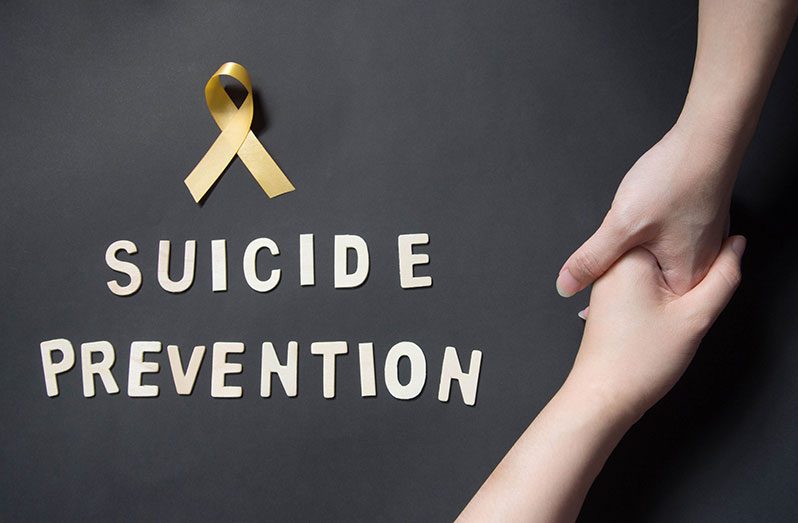By Vanessa Cort
NOWADAYS when someone takes their own life they are said to have ‘died by suicide’. This terminology came about because the idea of a person committing suicide is sometimes seen as victim-blaming,
This was explained by Psychotherapist, Shane Tull, who said, “When we say ‘commit suicide’, we seem to be blaming the person, whereas the act is to stop the pain.”
In an interview, the psychotherapist also clarified a statement he made that suicide rates go up in the last month of .the year – from December 1 to January 1. Although many of us consider December as the ‘Happy Month’, where people are contemplating and preparing for Christmas celebrations, the reverse is true for some.
“Holidays bring on a lot of depression for some,” he said, adding: “think about members of the LGBT community who may be ostracised from their families.” And this made me immediately think of persons with substance abuse problems who may also be cut off from their families and in their depression resort to suicide.
Indeed suicide is such a grave social issue that, following a World Health Organisation (WHO) report that Guyana had the highest suicide rate in the world, this country became one of only 28 to develop a Suicide Prevention Plan. The plan sought to identify factors that could contribute to suicide and has led to the establishment of a Suicide Hotline.
The Ministry of Health declared that “poverty, pervasive stigma about mental illness (and) access to lethal chemicals”, are among those factors most responsible for suicide. Statistics also show that the suicide rate is higher among men, which Tull explained was because, while more women may attempt suicide, men are more likely to complete the act.
He also noted that often the family is unjustly blamed for the suicide of a member, saying, “When someone is committed to the act they’re committed… there is nothing anyone can do.”
The role of society is to try to prevent individuals from getting to this point by paying close attention to anyone displaying signs of seeking to harm themselves, Tull, who also serves as a consultant, advised.
He noted that this is a time when “we can really reach out”, because, particularly in the month of December, people are reluctant to reveal their suicidal thoughts.
The consultant declared that, more importantly, it may actually be necessary to deal ‘head-on’ with a person displaying suicidal tendencies. “It’s a very delicate topic… but sometimes you really need to confront the person,” he said, adding that a talk may be vital so that “they really see the gravity of what they’re thinking.”
And in a report on suicides in this country, Balogun Osunbiyi, Co-founder of the Guyana Psychological Association and Government Psychologist, noted that the factors contributing to suicide “are like dominoes. Sometimes it’s more of this, sometime it’s more of that.”
Clearly there are myriad reasons that may lead to a person deciding to take his/her own life, but what is equally clear is that suicide is an attempt by individuals to end the pain they are feeling.
And this may occur, not when the person is at a particularly low point, but when all seems to be well and no one suspects the dark thoughts hiding under the surface.
“This is what is so baffling… they don’t want you to see them as weak,” Tull said. However, he urged that we ask troubled individuals outright if they are thinking of self-harm, so they can talk about it, because, “sometimes this can snap them out of it.”



.jpg)








